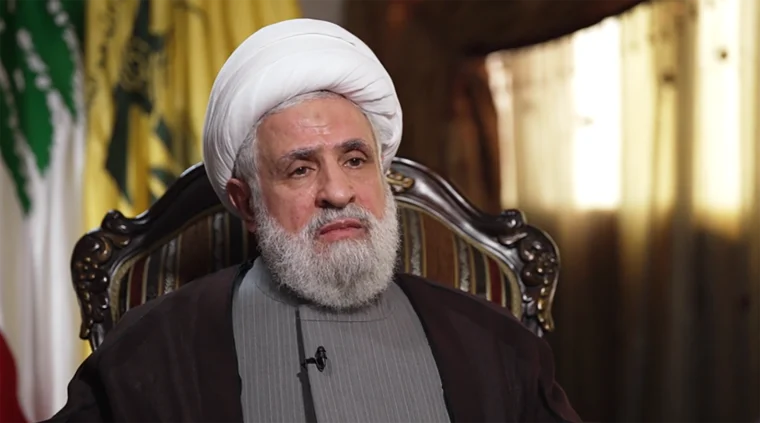Naim Qassem
Hezbollah has appointed Naim Qassem as its new interim leader following the assassination of its long-time chief, Hassan Nasrallah, in an Israeli airstrike in Beirut, Lebanon.
This significant leadership change comes after the organization confirmed Nasrallah’s death on Saturday, marking a pivotal moment for Hezbollah and its operations in the region.
Before his elevation to interim leader, Qassem served as Hezbollah’s deputy leader, a position that allowed him to play a crucial role in the organization’s strategic decisions and operations.
His appointment comes at a time of heightened tensions and violence in Lebanon, particularly given the circumstances surrounding Nasrallah’s death.
The Israeli military carried out a large-scale operation, dubbed “New Order,” during which they dropped approximately 80 bombs, each weighing a ton, targeting Hezbollah’s central headquarters in the Dahieh area near Beirut.
The airstrikes not only resulted in Nasrallah’s death but also claimed the lives of his daughter, Zainab, and Hezbollah’s southern front commander, Ali Al-Kurki. Reports indicate that Israeli forces intensified their bombing once they confirmed Nasrallah’s presence in a bunker, leading to the devastating strike.
The death of Hassan Nasrallah represents a significant setback for Hezbollah and its supporters, particularly Iran. Nasrallah was a prominent figure in the Tehran-backed “Axis of Resistance,” instrumental in extending Iranian influence throughout the Middle East.
Over the years, Israel has successfully targeted several high-ranking Hezbollah commanders, including Fuad Shukr, Ibrahim Aqil, Ibrahim Mohammed Kobeissi, and Mohammed Srur, in a series of focused strikes aimed at dismantling the movement’s leadership in Beirut.
In the aftermath of the initial attack on Friday, Lebanese health authorities reported six deaths and at least 91 injuries, though this toll is expected to rise as more information becomes available.
In total, over 700 individuals have reportedly died in strikes across the region in the past week, indicating a rapidly escalating conflict.
In June, Naim Qassem warned against any expansion of the war by Israel, asserting that Hezbollah would respond robustly to any further aggression. He stated, “We will never surrender in the face of threats such as the expansion of war. This is because we are determined to continue supporting Gaza. We will not stop our operations against Israel as long as occupiers continue massacres and acts of aggression in Gaza.”
Qassem’s leadership is likely to influence Hezbollah’s future actions and its ongoing response to the current conflict, as the organization seeks to navigate the aftermath of Nasrallah’s assassination while maintaining its operational capabilities in the region.










